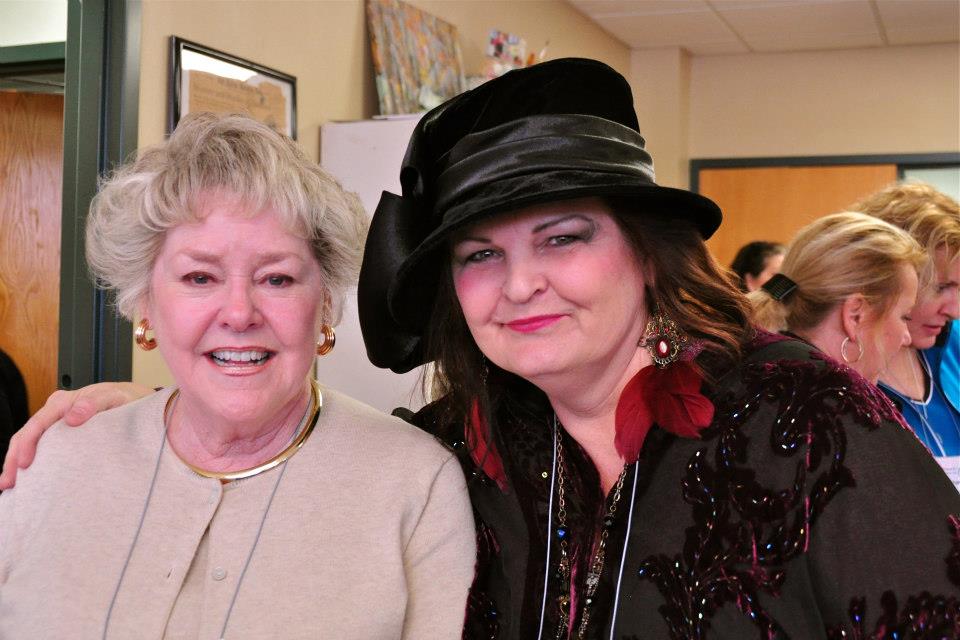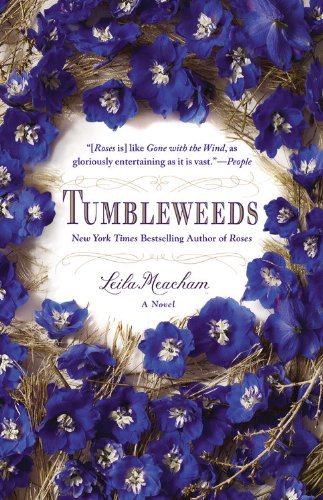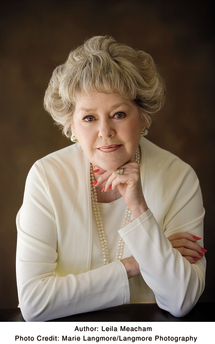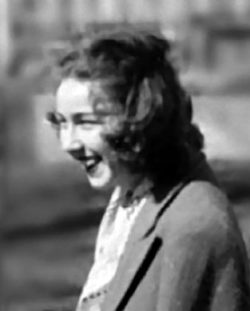Editor’s Note: One of the best things about attending Kathy Patrick’s Girlfriend Weekend in Jefferson, Texas is the opportunity I get to meet some pretty fabulous writers. If it seems like we writers are always plugging other writers, it’s because we love reading good books at much as you do. I heard New York Times bestselling author Leila Meacham speak on a panel and I just knew I had to share her back-story with you. It’s such a remarkable story.

Here’s a glimpse at two of her books as reported in the New York Times last year: “Her 2010 novel, “Roses,” follows the three founding families of a fictional Texas town over the course of nearly a century of secret-keeping.”
Her newest book is “Tumbleweeds.”
And here’s what others are saying about her work:
“Roses heralded as new Gone with the Wind.” (USA Today )
“As large, romantic, and American a tale as Texas itself.” (Booklist )
“An enthralling stunner….A compelling saga with echoes of Gone with the
Wind.” (Publishers Weekly )
“It’s been almost 30 years since the heyday of giant epics…but Meacham’s
debut might bring them back. Readers who like an old-fashioned saga will
devour this sprawling novel of passion and revenge.” (Library Journal )
I adore Leila and even more so because in the course of our corresponding, I learned that her husband, an Air Force veteran, served in Vietnam. Leila said she could never have gotten over it if she had lost her husband in Vietnam the way my mother did.
If you enjoy our interview, be sure and pick up Leila’s books. The former Texas English teacher tells stories the way they are meant to be told — with sheer delight.
Karen: Where did you grow up?
Leila: I grew up in Wink, a little town in West Texas with a population of perhaps two thousand. It was aptly named since you could pass by it in the wink of an eye.
Karen: Were you raised in a household of faith? How did that raising help determine the course of your own life?
Leila: My parents were southern Baptists, and my brother and I were reared in the church from the time that we started first grade. We went to Sunday school and church on Sunday, training union Sunday nights, prayer meetings on Wednesday evenings. The church was a mainstay of our lives. I don’t know that we were a family of faith as much as a family of Baptists. I was not so much spiritually fed as spiritually trained. We children lived by a list of moral do’s and don’ts, rights and wrongs. As a result we did not smoke or drink, take God’s name in vain, lie, cheat, or steal. Even so, I developed a personal relationship with God at a very early age. I thought of Him then as my loving heavenly father, and that image of Him has abided within me always.
Karen: Who were some of your favorite childhood literary characters and why?
Leila: I loved all the classic books featuring animals. The characters in Wind in the Willows–Mole, Ratty, Badger, and the irresistible Toad—enchanted me. I was crazy about Alice in Wonderland, The Wizard of Oz, and Black Beauty. I suppose I loved them because I have a great fondness for animals.
Karen: How old were you were you began writing your first book?
Leila: Forty one.
Karen: When you were writing that book, did you have a dream for it? Something you imagined or hoped would happen to it?
Leila: Not really. It was of the romance genre. In those days, romances were all the rage. I wrote the book because a colleague bet me a steak dinner that I could, and I bet her I couldn’t. Lo and behold, a local agent took a look at it (again at the behest of my friend), submitted it for publication, and Walker and Company of New York bought it right away. I had to pay the tab for two steak dinners at the San Francisco Steak House.
Karen: Did you pray about your writing? And if so, what form did those prayers take?
Leila: At that time, since I wasn’t seriously pursuing a writing career, I don’t recall asking for divine guidance. Writing the book was nothing but a simple experiment.
Karen: What did you do with that book after you wrote it?
Leila: I put it on a shelf and went on with other pursuits, mainly teaching, my first love.
Karen: When did writing become a daily discipline for you?
Leila: When I began writing the saga Roses at sixty-five. I had an epiphany one morning when I asked God what he wanted me to do with the rest of my life. I clearly felt Him tell me to finish the book I’d started twenty years earlier during a year of illness and put away when my health returned. I would never have opened the box that contained the manuscript if I had not believed that God called me to complete it. As a result, I did the thing I most dreaded about writing: I sat down for a certain length of time each day and wrote with no hope that anything would come of my endeavors. I worked on the book over a period of five years.
Karen: How was it that you came to publish Roses?
Leila: Well, that was indeed a divine thing. The day after I placed the final period on the manuscript, a friend contacted her niece in New York City, who happened to be the wife of a prominent literary agent. My friend informed her niece that she wanted her husband to take a look at my manuscript. I was instructed to send a synopsis and the first seven chapters of the book to his office. He read the material, requested the rest of the book, and within weeks e-mailed that he would be happy to represent it. After several months of revisions, my agent submitted the manuscript to numerous publishers in New York, and Grand Central Publishing made a pre-emptive bid for the novel. In my jubilation, I remembered clearly God’s promise of the morning I asked Him what He wanted me to do with the rest of my life. “You write the book, and I’ll do the rest.” And He did. Roses went immediately on the New York Times best seller list and has been translated into the languages of twenty-two countries.
Karen: How does one go about developing a prayer life intimate enough to hear the promptings that led you to write?
Leila: A simple belief that God listens and responds when we ask Him to lead us. I do not believe I could write without a channel open between us. I feel the flow of inspiration when I pray for him to guide my body of work for the day.
Karen: Were there moments of doubt when you were working on Roses? Moments when you felt inadequate to the task?
Leila: Oh, my goodness, yes. The book covers nearly seventy years of the history of three families. I often asked myself, considering the time span, if I was up to the research and organization and scope required to tell their story. Did I have the skill, the talent, the patience, the perseverance to write a 630 page novel. Often I felt I did not, but I plunged ahead because I knew I was doing what I was called to do.
Karen: Do you view your publishing story as a testament to God’s faithfulness? Or do you frame that another way?
Leila: I definitely view the story behind the story of Roses and subsequently two other published novels that I’ve written as a testament to God’s faithfulness. I am in daily awe of His fulfilled promise to me: “You write the book, and I’ll do the rest.”













